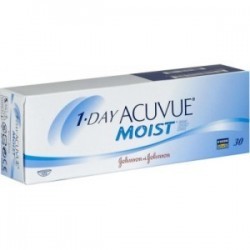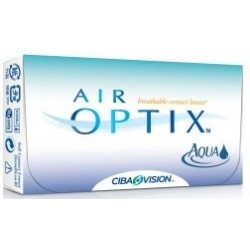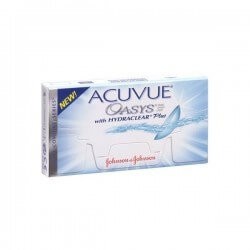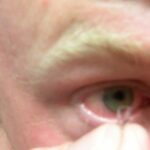The Ultimate Guide To Buying Your First Contact Lenses Online

Don’t let the life-changing task of buying contact lenses for the first time intimidate you. Look no further, for we’re here to guide you every step of the way. We’ll ensure to include each necessary detail to help you during the decision process.
Contact Lens Buying Guide – Factors to Consider Before ordering contacts online
There’s more to decision-making than choosing between soft and rigid contact lenses. Think about the following factors before purchasing your first set of contacts. That information is important for every contact lens wearers. So, even though you have experienced contact lens wearers, make sure you check this information about buying contact lenses online.
Contact eye care professional

Let’s start with the most essential one. Never skip the part of consulting an optician to examine your eyes and analyze the right fit of contact lenses for you. Aside from fit to ensure comfort, the strength of the contacts should be determined, too. It will literally be a headache if your lenses don’t match the quality of your vision. So be sure to visit eye doctor and get your eye exam.
Getting a eye test and contact lens prescription is a must-have because it contains all the information you need about your eyes and contact lenses. It will save you time, too, because you can buy contact lenses online without even going to an eye doctor’s clinic.
Learn more to understand
Risk of Not Having Contact Lens Prescription
Not getting a contact lens prescription can cause various issues like blurry vision, headaches, and red eyes. Wearing the wrong lenses will also put your eye health at risk because it can lead to corneal ulcers. In short, you might damage your eyesight if you don’t get a professional’s help choosing the right contact lenses.
Ultraviolet (UV) Protection
If you’re planning to wear soft contact lenses and you’re always outdoors, don’t hesitate to get contacts with a protective layer against the UV rays from the sun. However, since the coverage of the lenses is limited and the sunlight feels deadly sometimes, it’s still important to wear sunglasses despite the high level of UV protection from your contacts.
Contact lens material
Two primary materials for making contacts are silicone hydrogel and regular plastic.
The former offers more oxygen to your eyes and keeps them healthy. If you have sensitive eyes, always choose lenses made of silicone hydrogel. However, they’re usually a bit pricier than those made with regular plastic.
Colored or clear lenses
If you’re not comfortable with your natural eye color or you want to experiment with a new look, there’s no harm in coloring your eyes using contact lenses. Some of them can even make your pupils appear larger, if that’s what you prefer. Be sure to ask about the different tints available to get the perfect shade for you.
On the other hand, clear lenses are ideal if you only want to enhance your vision and don’t need or want a change in eye color.
Hybrid Contact Lenses
Still can’t choose between soft and RGP contact lenses? It’s a good thing hybrid ones exist. A standard hybrid lens is RGP in the middle, with a softer material surrounding it like a ring. That design can guarantee vision correction without subjecting the rest of your eyes to stiff material.
However, take note that not all hybrid lenses are created equal. A newer type of hybrid lens offers the same benefits as a soft lens but has a firmer center. That way, you can still enjoy the comfort of softer contact while correcting vision problems caused by astigmatism.
Custom-made contact lenses
Not all people have the same size and shape of eyes. As a result, some off-the-shelf contact lenses might not fit well and cause discomfort. Fortunately, there are now custom-made contacts that assure a better fit. The price is higher than regular lenses, but the comfort level is definitely worth it.
Length of wear for contacts

You can get contact lenses in a few different varieties, depending on how often you want to wear them.
The lenses are designed for different schedules, from once a day to 30-day extended wear. If you only need or want to wear contacts occasionally, there are also lenses you can dispose of after one use. Choose the type that works best for your lifestyle and needs.
Monthly wear contacts
Monthly lenses are a good option if you want to wear contacts every day but don’t want the hassle of taking them out and cleaning them every night. You can wear them for 30 days straight before discarding them. Just make sure to clean and disinfect them at the end of each month.
Two-Week wear contacts
As the name suggests, two-week lenses can be worn for up to 14 days. After that, they must be cleaned and stored in lens solution overnight. You can then wear them again the next day. This type of contact is a good middle ground if you don’t want the hassle of cleaning your lenses every night but don’t want to commit to monthly lenses.
Daily wear contacts
If you only need or want to wear lenses occasionally, daily lenses are the way to go. You can simply put them in when you need them and take them out at the end of the day. No need for cleaning or storing in the solution overnight. Just make sure to dispose of them after one use.
Extended wear contacts
If you want to be able to wear your contacts for longer periods, extended-wear lenses are the way to go. You can keep them in for up to 30 days straight before taking them out and cleaning them. Just note that this type of contact isn’t recommended for everyone as it can increase the risk of eye infections.
Soft or Hard Contact lenses?
Choosing the right type of contact lenses can greatly impact your eye comfort and overall vision experience. Soft and rigid gas-permeable (RGP) contact lenses are the two main options available, each with its own set of advantages and disadvantages. To determine which type suits you best, let’s explore the factors you should consider.
Are soft contact lenses right for you?
Even though soft contact lenses are known to be the most comfortable type, they’re surprisingly not for everyone. Allow us to present the following checklist, so you’ll know whether soft contact lenses are best for you or not:
- Do you need vision correction?
- Are you living in a heavily polluted area?
- Are you using public transportation frequently?
- Do you have access to clean water most of the time?
- Do you prefer bi-weekly or monthly contact lenses?
If you answered yes to most questions, we have bad news. You should try considering other types of contact lenses.
Most lenses effective for correcting vision are rigid gas-permeable (RGP). If your vision problem requires stronger contacts, we don’t recommend softer ones. Although, some manufacturers have managed to develop and produce soft contact lenses for specific eye conditions like astigmatism. Those products for astigmatism are technically called torics.
Another major downside of soft contact lenses is they quickly absorb pollutants. If pollution is rampant in your city, and you’re commuting on buses, trains, or other public vehicles during weekdays, your eyes will be safer with rigid contacts. Or, don’t wear lenses at all! Wear glasses while traveling and just use your contacts again when you arrive at your destination–indoors, of course.
However, since you need to wash your hands before putting contacts in your eyes, using soft contact lenses is not advisable if you don’t have access to clean water. But what about hand sanitizers or rubbing alcohol? Well, those products may contain irritants that can be absorbed by soft contacts. It gets worse if you’re always applying lotion all over your hands.
Now, there’s a reason why most daily disposable contact lenses are soft. Aside from the fact that daily disposables aim for ultimate comfort, however temporary, soft contacts can be easily ripped apart. They’re generally meant for one-time use. You’ll have no choice but to resort to more durable lenses if you prefer weekly or monthly replacement.
Find the contact lenses you need:
Monthly disposable contact lenses
Are rigid gas-permeable contact lenses right for you?
Here’s the checklist for knowing whether you should use RGP contact lenses or not:
- Are you in a hurry to finally wear contact lenses?
- Do you have a low tolerance for mild pain or discomfort?
- Are you going to wear glasses more often than contacts?
- Do you have an active lifestyle?
- Do you prefer low-maintenance contact lenses?
Just like the checklist we’ve created for soft contact lenses, this one tells you to avoid the RGP type if you mostly answered yes.
Rigid contacts can never surpass the level of comfort soft lenses provide. If it’s crucial for you to get used to wearing contact lenses as soon as possible, RGPs aren’t for you. It may take weeks for an average person to tolerate the stiffness of rigid lenses, and that will only happen if he wears them frequently. Weeks may turn into several months if contact lenses aren’t your priority due to your preference for glasses.
More importantly, we strongly recommend not wearing RGP contact lenses when you’re playing sports or doing other dynamic activities. Even a mild impact can easily move the position of a rigid lens because of its smaller size. You might end up adjusting your contacts more often than necessary. Just imagine the hassle, knowing that you should always wash your hands before touching any type of lens.
Despite the low cost of maintaining rigid contact lenses as opposed to buying a box of 30-piece disposables monthly, they will force you to clean and store them every single time you go to sleep (unless they’re designed for 24/7 use). You can just throw them away with disposable contacts right after using them for the day. If you don’t want the extra steps of disinfecting lenses and refilling the case with solution, skip RGPs and buy soft daily disposables instead.
Learn all you need to know about the contact lenses types >>
Buying contact lens solution and case
You can’t just put your contact lenses anywhere. They should be stored in a clean case filled with fresh solution. It would be best if you replaced the solution every time you use it and discard the old one. As for the case, make sure to sterilize it regularly to prevent bacteria buildup.
Look for an online contact lens retailer
Now that you know what to consider before buying contact lenses, it’s time to look for an online contact lens retailers. When choosing a seller, be sure to check the reviews first and see what other customers are saying. It’s also important to find a seller that offers a wide range of products from different brands so you can have more options.
Buy Online From ContactLenses4US!
A Step-By-Step Guide: How To Order Contact Lenses Online
Step 1: Look For Any Available Coupons, Promo Codes Or Rebates
Before you start shopping for contact lenses online, take a moment to look for any available coupons, promo codes, or rebates. Many online retailers offer discounts or special offers that can help you save on your purchase.
Step 2: Pick contact lens brand, type and wearing patterns
Choosing the right contact lenses depends on your lifestyle, comfort, and vision needs. There are different types of lenses like daily, weekly, or monthly disposables. You also have options for specific needs like toric lenses for astigmatism, multifocal lenses for presbyopia, and colored lenses for cosmetic use. Choose a reputable brand that is known for quality and comfort.
How to choose contact lenses?
Consider your lifestyle and vision needs. If you lead an active lifestyle, daily disposables might be more convenient. For those with specific vision problems, consult your eye doctor to get the best recommendation. You also need to consider the material of the lens, soft lenses are more comfortable while rigid lenses provide sharper vision.
Which type of contact lens is best?
The best type of contact lens varies per individual and depends on factors such as eye health, convenience, lifestyle, and comfort. It is recommended to consult an eye care professional to help identify the most suitable option for you.
Step 3: Find your contact lenses prescription
Your valid prescription is given to you by your eye care provider. It includes details like the power of your lenses, base curve, and diameter. Keep this information handy as you will need it to order the correct contact lenses online.
Can I order contacts online without up to date prescription?
No, you should not order contacts online without an up-to-date prescription. It is essential to have a recent prescription to ensure you’re getting the correct lenses for your eyes.
Can I buy contact lenses without consulting the doctor?
It’s not advisable to buy contact lenses without consulting a doctor as it may lead to vision problems or even eye damage. Your eye doctor can provide a proper prescription and advice on the best type of lenses for you.
Get to know what your contact prescription mean.
Step 4: Choasing and purchasing contact lenses online
Once you’ve selected your desired contact lenses, add them to your online basket. Check your prescription one more time to make sure you’ve chosen the right lenses. Proceed to checkout, apply any promo codes or coupons you’ve found, and make the payment.
Additional questions regarding buying contacts online:
Is it safe to buy contacts online?
Yes, it is safe to buy contacts online as long as you buy them from a reputable source and have a valid contact lens prescription.
Is ordering contacts online cheaper than buying them in person?
Generally, ordering contacts online can be cheaper than buying them in person due to lower overhead costs and frequent promotions.
Cheap contact lenses – Wich to choase?
There are many affordable options available. However, don’t compromise on quality for the price. Always choose lenses from trusted brands.
How much does a 1-year supply of contacts cost?
The cost of a 1-year supply of contacts varies depending on the type of lenses. On average, it could range from $200 to over $600.
Is It Cheaper To Buy Contact Lenses Online?
Yes, it can be cheaper to buy contact lenses online due to lower operating costs, and the possibility to compare prices between different sellers.
Valid prescription – how to read it?
A contact lens prescription includes several pieces of information: the power of your lenses (how strong your lenses need to be), base curve (the curvature of the lenses), diameter (the size of the lenses), and sometimes cylinder and axis (if you have astigmatism). Always consult your optometrist if you’re unsure.
Conclusion
The first thing you should keep in mind before purchasing contact lenses is to consider the material’s quality. Soft contacts are more comfortable yet less effective at vision correction while rigid gas permeable lenses are the exact opposite. You may choose the hybrid type instead, but you can just consult an eye doctor right away to ensure you’ll make the right decision.Do you need a prescription to buy contacts online?
Where to Buy Different Kinds of Soft Contact Lenses
Here at Contact Lenses 4 Us, we have a vast array of soft contacts with different features. If you prefer the monthly type, we recommend Air optix contact lenses. Meanwhile, if you have astigmatism, 1-Day Acuvue Moist for Astigmatism is perfect for you. And, for better-looking eyes, we recommend Acuvue 1-Day Define Natural Shimmer. The best part? They all have UV protection!
What are you waiting for? Order now! We don’t require a prescription AND we ship worldwide.

1-DAY ACUVUE MOIST FOR ASTIGMATISM
People who want to replace their contacts daily can opt for 1-Day Acuvue Moist for Astigmatism for their disposable wear. Hig...

Air Optix Aqua (6) contacts No prescription required
Air Optix Aqua contacts without prescription for beautiful eyes Air Optix Aqua features one of a kind SmartShield technolog...

ACUVUE OASYS contact lenses no prescription
Acuvue Oasys: Ultimate Comfort with HYDRACLEAR PLUS Discover the comfort of Acuvue Oasys contact lenses, empowered by HYDRACL...
Also check:
Can I wear contact lenses for swimming and other activities?
Can a Contact Get Stuck Behind Your Eye?






